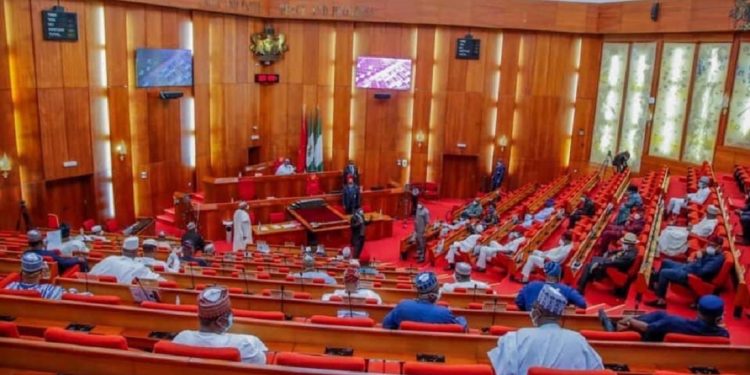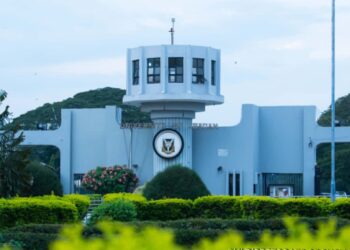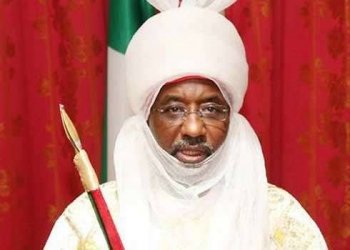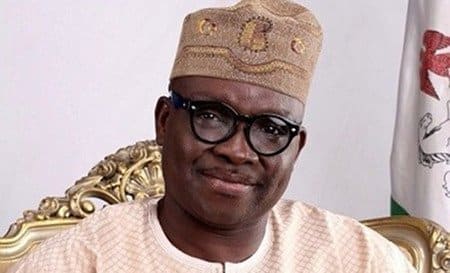Since Nigeria returned to democracy in 1999, Nigeria has had four presidents – Olusegun Obasanjo, Umaru Yar’Adua, Goodluck Jonathan and the incumbent, Muhammadu Buhari.
Each of the 36 states would also have had at least three governors within the period but could be more if any of the governors spent only one term of four years. But in the National Assembly – the nation’s bicameral legislature made up of the Senate and the House of Representatives – some lawmakers seem to be maintaining permanent seats in the chambers.
Interestingly, some of them have been in the parliament since 1999 and will complete their sixth term in 2023. Several members have been in either the House or the Senate or both since 2003, and they would have spent not less than 20 years in 2023 when the 9th Assembly winds down. The members belong to the ruling All Progressives Congress and the opposition Peoples Democratic Party. Some of them have also switched parties as part of moves to get re-elected.
Opinions are divided on which is better between having long-serving lawmakers and fresh lawmakers every four years. Some persons have argued that returning members have legislative experience and the institutional memory of parliamentary norms and processes. Those who belong to the former group often cite the example of the United States’ parliaments with many long-serving lawmakers, while those in the latter often argue that the Senate is fast becoming the ‘retirement home’ for former governors and ex-ministers.
Mutu, a typical landlord at the Green Chamber
Representing Bomadi/Patani Federal Constituency in Delta State, Nicholas Mutu has been in the House since 1999. He served as the chairman of the House Committee on Niger Delta Development Commission between 2009 and 2019 – arguably the longest time a member would head the same committee. Not one of the known names when it comes to debates on motions and bills, documents presented to the House Committee on NDDC by the immediate past Minister of Niger Delta Affairs, Senator Godswill Akpabio, had indicated that Mutu is a serial contractor to the commission. While the Olubunmi Tunji-Ojo led committee was investigating mismanagement and fraud in the NDDC, Akpabio had alleged that National Assembly members, especially the previous leadership of the committee, were beneficiaries of contracts from the commission. A list the minister provided showed that Mutu had the highest number of NDDC projects listed against his name.
Lawan: From the green chamber to the senate presidency
The incumbent President of the Senate, Ahmad Lawan, has been in the National Assembly since 1999. He was first elected a member of the House where he spent two terms. There he represented Bade/Jakusko Federal Constituency in Yobe State. In 2007, he was elected a senator to represent Yobe North Senatorial District and has retained the seat since then. Lawan became the President of the 9th Senate in 2019. Currently, he is seeking to be the President of Nigeria in 2023, which would depend on the outcome of the presidential primary of the APC scheduled for Monday.
Gbajabiamila: From floor member to Speakership
Femi Gbajabiamila is the current Speaker of the House of Representatives, serving his fifth term. He has been in the House since 2003, representing Surulere 1 Federal Constituency in Lagos State. The lawmaker was the Minority Leader of the House in the 7th National Assembly, and later Majority Leader in the 8th Assembly after his hope of becoming Speaker was dashed. Gbajabiamila has again secured the ticket of the APC to contest for the sixth term in 2023.
Ndume: Two-term Rep, three-term Senator
Since 2003, Ali Ndume has been in the National Assembly. He first represented Chibok/Damboa/Gwoza Federal Constituency in Borno State for two terms; 2003 to 2011, and was in 2011 elected to represent Borno South Senatorial District at the red chamber, a seat he has kept to date. During his stay in the chamber, Ndume had attempted to be President of the Senate at different times. He was the Majority Leader of the House in the 8th Assembly but was sacked over his political stance against that of the then President of the Senate, Bukola Saraki. Ndume was replaced with Ahmad Lawan, who is now the Senate President.
Ekweremadu: The longest-serving presiding officer
The lawmaker representing Enugu West Senatorial District, Senator Ike Ekweremadu, is serving his fifth consecutive term, having been in the Senate since 2003. He attempted to be President of the Senate in 2005 but failed. Senator Ken Nnamani got the position instead. However, Ekweremadu was the Deputy President of the Senate for three consecutive terms – 6th, 7th and 8th, spanning 12 years, a record time as a presiding officer in the National Assembly. The lawmaker had announced his retirement from the Senate in 2023. He joined the governorship race in Enugu but lost the PDP ticket.
Manager: A senator caught on his knees
The Delta South Senatorial District in Delta State has had James Manager as its representative since 2003. The lawmaker may not be returning with the 10th Assembly over his governorship ambition in Delta. A photograph showing Manager on his knees before a former Governor of Delta State, James Ibori, an ex-convict and political godfather of the PDP in the state, had gone viral on the Internet about a year ago.
Ogor: Once upon an opposition leader
Leo Ogor has been representing Isoko-North/Isoko-South Federal Constituency in Delta State at the House of Representatives since 2003. He was the Deputy Majority Leader of the House in the 7th Assembly and Minority Leader in the 8th Assembly. Ogor’s exploits as a leader in both majority and minority caucuses is on record, especially during heated debates with his then opponent, Femi Gbajabiamila, who was also Minority Leader and Majority Leader at different times.
Prominent members of Class 2007
Ado-Doguwa: From one Republic to another
Alhassan Ado-Doguwa is the current Majority Leader of the House. He was a member of the House in the botched Third Republic and returned to the parliament in the Fourth Republic to represent Doguwa/Tudun Wada Federal Constituency in Kano State in 2007. According to a document obtained from Ado-Doguwa’s office containing his profile, the lawmaker was said to have made history by becoming “the first Nigerian to be sworn in as a member of the House of Representatives immediately after completing his youth service.” Though he was rumoured to be nursing the ambition to govern Kano State, Ado-Doguwa is said to be one of the top contenders for the speakership seat in the 10th House, even though the election is still about eight months away.
Monguno: A serial speakership aspirant
Mohammed Monguno represents Marte/Monguno/Nganzai Federal Constituency in Borno State. He was first elected a member of the House in the Third Republic (1992/93) and returned to the House in 2007 under the current Fourth Republic. In 2015, Monguno contested the speakership but later stepped down for Gbajabiamila, who was the candidate of the APC. Monguno also lost his deputy speakership bid to Yusuf Lasun. While Yakubu Dogara beat Gbajabiamila to emerge as the Speaker, he kept Lasun as his deputy. Again in 2019, Monguno joined the speakership race and, again, stepped down for Gbajabiamila, who remained the party’s candidate for the position. He is the current Majority Whip of the House.
Gaya: From governorship to lawmaking
Senator Kabiru Gaya was Governor of Kano State in the Third Republic (from 1992 to 1993) on the platform of the National Republican Convention. He has been in the Senate since 2007, representing Kano South Senatorial District.
Abaribe: Alternating between executive and legislature
Senator Enyinnaya Abaribe became the deputy governor of Abia State in 1999, with Orji Uzor Kalu as the governor. Due to his rift with Kalu over his (Abaribe’s) governorship ambition, the state’s House of Assembly moved to impeach him as the deputy governor three times – twice in 2000 and a third time in 2003. To avoid the third attempt being successful, he would later resign his position. However, Abaribe emerged as the lawmaker representing Abia South Senatorial District in the upper chamber of the National Assembly in 2007 and has been there since then. Until last week, he was Minority Leader of the Senate. The senator lost the PDP governorship ticket in his state during last week’s primary, he resigned his membership of the party and minority caucus leadership in the Senate. He has now joined the All Progressives Grand Alliance where he now has the ticket to seek a return to the Senate.
Dogara: A Speaker in the majority and minority parties
Representing Bogoro/Dass/Tafawa Balewa Federal Constituency in Bauchi State, Yakubu Dogara, joined the House in 2007. Under a controversial circumstance, he became the Speaker of the House in the 8th Assembly (2015-2019), then a member of the ruling APC. His emergence was controversial because he was not the choice of his party, the APC. The party had a preference for Gbajabiamila. Dogara later defected from the APC to the opposition PDP while in office. Though he was re-elected as a member of the House in the current Assembly, Dogara, who has not been seen on the floor of the House, defected back to the APC a few months ago.
Betara: The man in charge of appropriation
Another member of the 2007 set is Mukhtar Betara, who represents Biu/Bayo/Shani Federal Constituency in Borno State and currently chairs the House Committee on Appropriation. He was one of the speakership aspirants at the beginning of the current House. His constituents procured the N10m APC expression of interest and nomination forms for him to seek re-election to the House in 2023. He is being tipped by some people to be the next Speaker.
Abba-Ibrahim: A family in love with lawmaking
Khadijat, the wife of former Yobe State governor, Bukar Abba-Ibrahim, has been in the House since 2007, representing Damaturu/Gujba/Gulani/Tarmuwa Federal Constituency in Yobe State. She was serving her fourth term in 2016 when the President, Major General Muhammadu Buhari (retd.), appointed her as the Minister of State for Foreign Affairs. On January 9, 2019, Abba-Ibrahim resigned from Buhari’s cabinet to contest for a fresh fourth term in the House and she won. Hers seems like a family in love with politics. At a point in time, she and her husband were in the National Assembly. Her husband was governor of Yobe State in the Third Republic – from January 1992 to November 1993. In the Fourth Republic, he became the governor again for two terms – from 1999 to 2007. In 2007, he represented Yobe East Senatorial District, where he was till the 8th Assembly which ended in 2019. Interestingly, Mrs Abba-Ibrahim contested against her stepson to clinch the APC ticket with which she is currently representing her constituency in the House.










